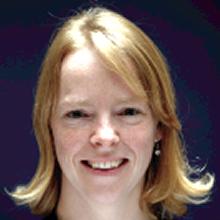Since records began: extending the record of extreme UK flood events back 2000 years
Fully funded NERC studentship
Supervisors: Prof. John Dearing, Prof David Sear and Dr Ian Croudace (SOES, National Oceanographic Centre)
The destructive floods in Cumbria (2009) and the Severn/Avon valleys (2007) have focussed attention on the roles of climate change and modern land use in determining extreme hydrological events. One typical response to extreme floods is to assess their rarity. But increasingly, conventional assessments of flood return periods are questioned because the instrument record of river discharge may be too short to capture the full range of flood magnitudes. Some researchers also believe that global warming is affecting the hydrological 'boundary conditions' so quickly as to make the prediction of floods from standard flood models invalid.
These uncertainties would be lessened if we could observe records of flood magnitude and frequency extending back many decades and centuries. Flood magnitude-frequency relationships could be studied for different combinations of climate and land use, and new predictive hydrological models could be developed and tested.
Recent research by the supervisors suggests that long flood records may be reconstructed from lake sediments using high-resolution analytical techniques. Core scanning techniques developed and available at Southampton, like the ITRAX x-ray core scanner system and new high resolution X-ray tomographic imaging systems, give data at potentially sub-annual resolution and may be complemented by conventional particle-size and magnetic analyses.
The student would build on this research to develop new protocols for reconstructing flood magnitude and frequency and to generate new flood records for selected lake sediment sequences in the UK back to around 2000 years before present. The student will be trained in methodology and all necessary analytical techniques. The student will join the very active Geography Graduate School and receive training in transferable skills.
Notes:
The closing date for applications is 1 April 2011.
Eligibility for this studentship is governed by the NERC – please see their
website
to check your eligibility BEFORE making an application:
For information on how to apply, follow these links or contact Julie Drewitt, Graduate School Administrator on j.a.drewitt@southampton.ac.uk if you have any further queries.
Other University of Southampton sites
Links to external websites
The University cannot accept responsibility for external websites.
